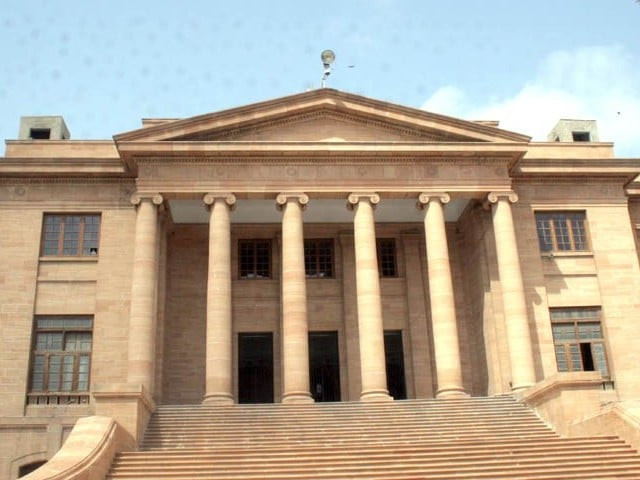Appointment controversy: SHC’s suo motu powers questioned
SC issues notice in drug court chief appointment case.

PHOTO: EXPRESS
The apex court has issued notices to attorney general of Pakistan (AGP) and all the provincial law officers over a plea filed by the federal government against the exercise of suo motu power by the Sindh High Court (SHC) in case of the appointment of a drug court’s chief.
The Supreme Court’s two-judge bench, headed by Justice Ejaz Afzal Khan, took up the federal government’s appeal against the SHC’s April 15 verdict, regarding suspension of a notification for appointment of the chairman drug court in Karachi.
The federal government contended that the initiation of suo motu proceedings by the SHC in the matter was an entirely improper exercise of judicial powers.
The government, through the Ministry of Law, also moved a petition in the top court, seeking suspension of the SHC order, wherein the high court converted the note of its registrar into a constitutional petition and suspended the notification for the appointment.
Deputy Attorney General Sohail Mahmood argued on behalf of the federal government before the bench. It is expected that the bench will give its ruling over the consultation process between the chief justices and federal government in connection with the appointment of a drug court’s chairman.
Earlier, the Ministry of Law had requested the SHC to forward a panel of candidates for appointment of drug court chairman, following which the court sent in three nominations for the said post on April 6. On April 8, Prime Minister Nawaz Sharif approved the appointment of Khalid Mumtaz as chairman, who was the second option in the list of names.
However, the SHC registrar on April 14 put up a note before the SHC chief justice, stating that Sofia Latif, a retired district and sessions judge, was nominated for the post but the Ministry of Law notified appointment of Khalid Mumtaz for the position.
After the request was filed, the SHC chief justice directed the note to be converted into a constitutional petition and fixed it before the high court’s division bench-II. On the following day, the SHC’s division bench suspended the notification.
The law ministry, in its petition, contended that the high court does not have any jurisdiction to issue a writ exercising suo motu powers while there is neither any warrant nor anyone has challenged the appointment of Khalid Mumtaz.
“The high court in such cases should have to confine [itself] only to relief claimed and has no jurisdiction in suo motu jurisdiction to suspend the appointment notification; therefore, instant proceedings are liable to be set aside/quashed being void and without jurisdiction,” said the Ministry of Law’s plea.
The petition said the SHC violated Article 10-A of the Constitution, which was newly incorporated through the 18th Constitutional Amendment. It contended that the right of hearing was neither given to the Ministry of Law nor to Khalid Mumtaz.
Published in The Express Tribune, September 24th, 2015.



















COMMENTS
Comments are moderated and generally will be posted if they are on-topic and not abusive.
For more information, please see our Comments FAQ